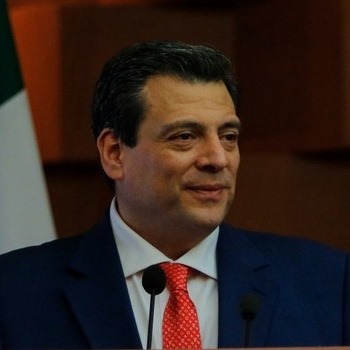by Charles Jay
Senator John McCain, who has long sought to gain federal oversight over the regulation of professional boxing in the United States, has once again introduced a bill, very similar to a previous failed bill he championed, that would establish the United States Boxing Commission. The “Professional Boxing Amendments of 2012” has come in reaction to the controversial decision in the Manny Pacquiao-Timothy Bradley fight, and its purpose is to “administer the Professional Boxing Safety Act of 1996,” among other things.
It is not our place, for purposes of this particular discussion, to pass judgment one way or another on the bill as a whole. However, as we understand that many people have been crying out for this kind of oversight, as if it could offer a cure for whatever ills, real or imagined, exist in boxing, there are some things you should know about it.
* It is an Unfunded Mandate — It does call for state agencies to carry out Federal law, but does not make provisions for any funds to do so. Not all bouts will fall within the purview of the United States Boxing Commission (USBC), but many will, and to comply with any new national law would require man-hours on the part of local jurisdictions. When McCain has pushed previous versions of this bill, there were some complaints along these lines, admittedly from states that wanted to retain their autonomy. Then there is the bigger question as to whether the various Attorneys General around the country would feel the inclination to prioritize enforcement of the bill. The Muhammad Ali Boxing Reform Act (which amended the PBSA) hardly got enforced at all. There are simply bigger priorities.
* It Won’t Eliminate Sanctioning Bodies — If you think that sanctioning bodies are a major problem in boxing, this bill will not take any substantive measures to lessen their influence. The USBC will not be in the business of ranking fighters, sanctioning championship matches or bestowing title belts on anyone. There are regulations already in place that govern some of the activity of the alphabet soup organizations. Essentially, the requirements they must meet are the same as they have been before; they must post their ratings publicly and explain changes. Compliance with that has been reasonable, at the very least. With legislation that is on the books already, boxers can mount a challenge to a rating, and can go through a process to do so.
For example, if a fighter who was ranked #12 defeated the #5 contender in a certain sanctioning organization’s ratings, but was not rated higher than that beaten opponent in the next published ratings, he could demand a appeal, in which case the sanctioning body would have to provide “the organization’s rating criteria, its rating of the boxer, and the rationale or basis for its rating (including a response to any specific questions submitted by the boxer).” There are probably not enough fighters who have availed themselves of this process, but it does indeed exist.
* Testing Standards Wouldn’t Be Uniform Across the Board — For those of you who have been greatly concerned all the drama that has been created by drug testing, whether it has been mandated by a commission or done voluntarily through a third-party organization, the USBC does not provide relief. There would be a medical database, yes, but there would not be a Federal requirement to test for the same substances, regardless of where the bout is held in the United States. Actually, the mechanism exists that could make that work. The Association of Boxing Commissions is a trade organization comprised of the state and tribal commission across the country, and if all the members could come to an agreement about which drug tests are going to be administered, it would, for all interests and purposes, be the law in every jurisdiction. Come to think of it, you could probably say that about most of these issues.
* It’s Still a Bunch of Politicians — Whether you are aware of it or not, boxing IS regulated by government. Anyone who has the authority to enforce boxing rules and regulations is someone who has been appointed through a political process. They may be far down the totem pole, but they are political appointees nonetheless. When the party in power changes in a state, it is not uncommon that the makeup of the boxing commission changes as well. As far as the tribal commissions are concerned, they are appointed by the various tribal councils. In other words, you still have politicians in control. What the USBC will do is shift the ultimate control one step away from the local jurisdiction. It’s sort of like having a Department of Education, well removed from the local school boards. Very little will change with regard to the existing state/tribal commission structure, except that there will be a layer of authority above it. Some of you may have a lot more faith in the politicians holding national office as opposed to those in state offices, and then again, some of you may not. But make no mistake; it’s still about politics.


















